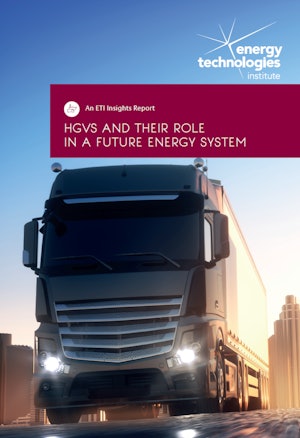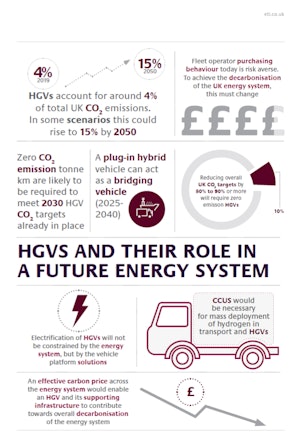HGVs and their role in a future energy system

Matthew Joss
Principal Engineer

This insight report aims to address the decarbonisation options for HGVs as part of the wider energy system to help the UK reach an 80% reduction in greenhouse gas emissions and then to go beyond towards net zero.
This research shows zero carbon emission vehicles are likely to be required from 2030 to meet current targets. Plug-in hybrid vehicles could act as a bridging vehicle from 2025 to 2040 to help smooth the transition to fully zero emission options.
This insight suggests electrification of the HGV fleet is the most promising long-term solution, but the fleet duty cycle and cost/packaging requirements pose challenges for existing technologies.
The use of hydrogen as an energy vector, either in zero emission platform solutions, or in plug-in hybrids, will require the supply of large volumes of cheap, clean hydrogen. This reinforces the need to deploy Carbon Capture Use and Storage (CCUS) technologies.
Rather than the ability of the energy system infrastructure to generate and distribute electricity, the report suggests that it is likely to be the availability of suitable vehicle platform solutions which will be the largest constraint on the electrification of HGVs.
The research also shows that an effective carbon price across the energy system would enable a transition to low and zero emission HGVs.

Matthew Joss
Principal Engineer